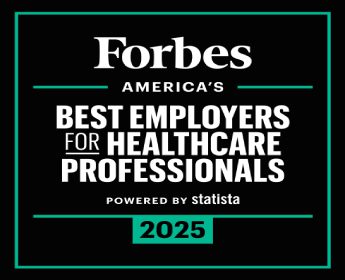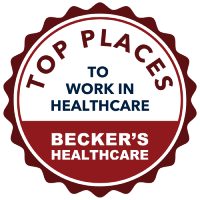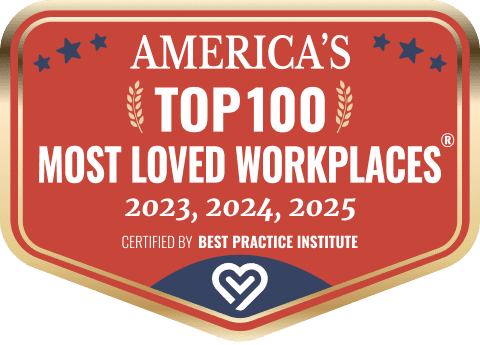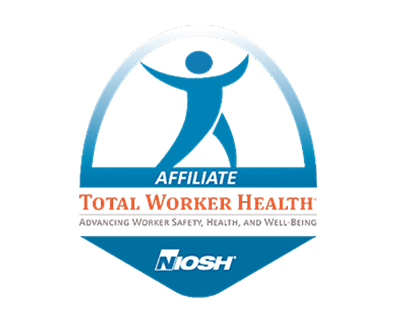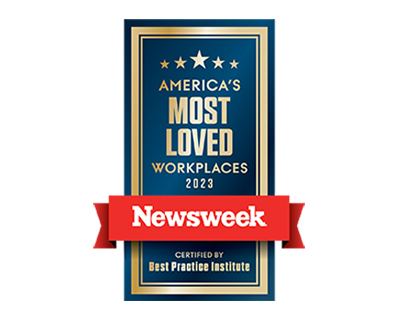A passion for MAKING
AN IMPACT
A passion for MAKING AN IMPACT
CAREER AREA GUIDES
What they do:
EMTs provide out of hospital emergency medical care and transportation for critical and emergent patients who access the emergency medical services (EMS) system.
EMTs have the basic knowledge and skills necessary to stabilize and safely transport patients ranging from non-emergency and routine medical transports to life threatening emergencies. EMTs function as part of a comprehensive EMS response system, under medical oversight. They perform interventions with the basic equipment typically found on an ambulance and are a critical link between the scene of an emergency and the health care system.
Licenses/Certifications:
- EMT Certification
- Ambulance Driver Certificate
- Medical Examiner Certificate
Education needed:
- EMT Training Program
Local schools offering this program:
- El Camino College
- EMT Course – UCLA Center for Prehospital Care
Organizations:
What they do:
Marriage and Family Therapists (LMFT) are licensed mental health practitioners who work with individuals, children, couples and families to provide psychotherapy and related emotional/behavioral therapy services. LMFTs focus on the interpersonal and relational aspects of human behavior, as well as the social contexts in which problems occur. LMFTs may work in a variety of settings including health care organizations, educational organizations, community organizations and private practice.
Licenses/Certifications:
- LMFT License
Education needed:
- Master’s degree
Local schools offering this program:
- Azusa Pacific
- Mount Saint Mary’s University
- Cal State LA
- The Chicago School of Professional Psychology, LA
- Pepperdine University
- Loyola Marymount
Organizations:
What they do:
Medical Assistants complete administrative and clinical tasks in the offices of physicians, podiatrists, chiropractors and other health practitioners. Their duties vary with the location, specialty and size of the practice. Some of their duties include taking patient medical history and measuring vital signs, helping the physician with patient examinations, giving patient injections or taking EKGs as directed by the physician, scheduling patient appointments, preparing blood for laboratory tests, and helping patients feel at ease in medical settings.
Licenses/Certifications:
- Medical Assistant Certification
Education needed:
- High School Diploma or GED
Local schools offering this program:
- Pasadena City College
- East San Gabriel Valley
- Southern California Regional Occupational Center
- UCLA Extension/UCLA Health (discount to UCLA employees)
Organizations:
What they do:
Medical coding is a specialized profession within the wider field of healthcare administration. Professional medical coders review the documentation contained in patients’ medical records, then they translate the written documentation into universally accepted, industry-standard medical code. These codes are used to submit claims to third-party payers and to gather statistical information, both by tracking incidents of specific diseases and by detecting developing trends in treatment procedures. Accurate medical coding is essential to the healthcare industry. It is how claims for payment are reported for appropriate reimbursement of provided medically necessary services.
Licenses/Certifications:
- Certified Coding Specialist (CCS)
- Registered Health Information Technician (RHIT)
Education needed:
- Associate degree in Health Information Science or Bachelor degree in Health Information Management OR Completion of courses in coding from an accredited coding program
Local schools offering this program:
- Loma Linda University
- Santa Barbara City College
- Westchester College of Nursing and Allied Health
Organizations:
What they do:
Mental Health Practitioners work in a supporting role for mental health professionals, such as psychiatrists or doctors, to provide care for patients with mental illness. Typical duties include coordinating mental health services, assisting in patient assessment, monitoring and documenting care, escorting patients and recognizing the personal needs of patients.
Licenses/Certifications:
- None
Education needed:
- Bachelor’s Degree in Psychology
Local schools offering this program:
- Cal State University, Los Angeles
- UCLA
- The Chicago School
- Mount Saint Mary’s
- USC
Organizations:
What they do:
The role of an Occupational Therapist is to work with a patient to help him or her achieve a fulfilled and satisfied state in life. Through the use of purposeful activity or interventions, OTs work to achieve functional outcomes that promote health, prevent injury or disability and develop, improve, sustain or restore the highest possible level of independence.
Licenses/Certifications:
- NBCOT Certification Exam Licensure
Education needed:
- Master’s Degree
Local schools offering this program:
- Cal State Dominguez Hills
- Loma Linda University
- USC
- West Coast University
Organizations:
What they do:
OTAs provide occupational therapy services under the direction and supervision of a licensed occupational therapist. They help people of all ages with traumatic injuries, stroke, Alzheimer’s disease, or other mental health problems learn to live productive lives through the use of meaningful occupations. They use procedures and treatments to assist patients with their development, disabilities or recovery issues. They focus on using sight, movement and brain function to help patients regain control and become productive.
Licenses/Certifications:
- National OTA Certification
Education needed:
- Associate degree from an accredited OTA program
Local schools offering this program:
- Santa Ana College
- Stanbridge University
- CBD College
Organizations:
What they do:
A Pharmacy Technician, also known as a Pharmaceutical Technician, is a healthcare worker who performs pharmacy-related functions, generally working under the direct supervision of a licensed pharmacist or other healthcare professional. Pharmacy techs are employed in a variety of locations, usually in community/retail and hospital pharmacies but also in long-term care facilities, pharmaceutical companies, third-party insurance companies, or computer software companies. Job duties include dispensing prescription drugs and other medical devices to patients and instructing on their use. They may also perform administrative duties in pharmaceutical practice, such as reviewing prescription requests with doctors’ offices and insurance companies to ensure correct medications are provided and payment is received. More recently, pharmacy techs also speak directly with patients on the phone to make sure they take their medications on time.
Licenses/Certifications:
- Pharmacy Tech License
Education needed:
- High School Diploma or GED
Local schools offering this program:
- American Career College
- Cal State Los Angeles
- Cal State Dominguez Hills
- LA City College
- West LA College
Organizations:
What they do:
The primary function of a Phlebotomy Technician is to obtain patient blood specimens by venipuncture or microtechniques. The phlebotomist aids in the collection and transportation of other laboratory specimens, and may be involved with patient data entry. They also draw blood for transfusions, donations and research.
Licenses/Certifications:
- Phlebotomy Technician License
Education needed:
- High School Diploma or GED
Local schools offering this program:
- UCLA Prehospital Care
- College of the Canyons
- Regan Career Institute, Long Beach City College
Organizations:
What they do:
Physical Therapists (PTs) provide services that help restore function, improve mobility, relieve pain, and prevent or limit permanent physical disabilities of patients with injuries or disease. PTs work closely with patients and clients to restore, maintain, and promote their overall fitness and wellness for healthier and more active lifestyles. Patients may include accident victims and individuals with disabling conditions, such as low back pain, fractures, head injuries, arthritis, heart disease, strokes and cerebral palsy.
Licenses/Certifications:
- National Physical Therapy Examination Licensure
Education needed:
- 4-6 year accredited college program in Physical Therapy
Local schools offering this program:
- Azusa Pacific
- Cal State Long Beach
- Cal State Northridge
- Loma Linda University
- Mount St Mary’s College
- University of Southern California
Organizations:
What they do:
PTAs provide physical therapy services under the direction and supervision of a licensed physical therapist. They help people of all ages who have medical problems, or other health-related conditions that limit their ability to move and perform functional activities in their daily lives. They may provide care by teaching patients exercise for mobility, strength and coordination, and training for activities such as walking with crutches, canes or walkers.
Licenses/Certifications:
- National PTA Certification
Education needed:
- Associate degree from an accredited PTA program
Local schools offering this program:
- Casa Loma College
- Loma Linda University
- Stanbridge College
Organizations:
What they do:
Rad Techs are the healthcare professionals who perform diagnostic imaging procedures, such as X-ray examinations, magnetic resonance imaging (MRI) scans and computed tomography (CT) scans. Most technologists work in hospitals, though some work in doctors’ offices and private clinics. Some of their duties include adjusting and maintaining imaging equipment, precisely following orders from physicians on what areas of the body to image, preparing patients for procedures and putting patients at ease.
Licenses/Certifications:
- ARRT and CRT licensure
Education needed:
- Associate degree in radiologic technology (approved, certified program through the American Medical Association)
Local schools offering this program:
- Loma Linda University
Organizations:
What they do:
Respiratory Therapy is the healthcare discipline that specializes in the promotion of optimum cardiopulmonary function and health. Respiratory therapists apply scientific principles to prevent, identify and treat acute or chronic dysfunction of the cardiopulmonary system. Their knowledge of the scientific principles underlying cardiopulmonary physiology and pathophysiology, as well as biomedical engineering and technology, enable them to effectively assess, educate and treat patients with cardiopulmonary disorders. Respiratory therapists administer treatments to help patients with pneumonia, asthma and other diseases breathe easier. They also assist with operating ventilators.
Licenses/Certifications:
- Respiratory Therapist State Licensure
Education needed:
- Associate’s Degree + completion of 2-year program
Local schools offering this program:
- El Camino Community College
- American Career College
- LA Valley College
- Loma Linda University
Organizations:
What they do:
Speech-Language Pathologists assess, diagnose, treat and help to prevent speech, language, cognitive, communication, voice, swallowing, fluency and other related disorders. Speech-language pathologists work with people who cannot make speech sounds or cannot make them clearly; those with speech rhythm and fluency problems, such as stuttering; those with voice quality problems, such as inappropriate pitch or harsh voice; those with problems understanding and producing language; those who wish to improve their communication skills by modifying an accent; and those with cognitive communication impairments, such as attention, memory and problem-solving disorders. They also work with people who have oral motor problems that cause eating and swallowing difficulties.
Licenses/Certifications:
- License in Speech Language Pathology (CCC) Certificate of Clinical Competence
Education needed:
- Master’s Degree
Local schools offering this program:
- Cal State Long Beach
- Cal State Los Angeles
- Cal State Northridge
- Chapman University
- Loma Linda University
Organizations:
What they do:
Sterile Processing Technicians clean, decontaminate and sterilize used surgical instruments and other medical supplies so that they can be redistributed and safely reused on new patients. Common duties include operating sterilization washers, assembling trays of instruments and delivering and keeping records of supplies.
Licenses/Certifications:
- CBSPD Technician Certification
Education needed:
- Certificate Program (typically 9 months or less)
Local schools offering this program:
- LA Trade Tech
- LA Harbor College
- Glendale Career College
Organizations:
What they do:
Surgical Technologists assist in surgical operations under the supervision of surgeons, registered nurses or other surgical personnel. They are members of operating room teams, which most commonly include surgeons, anesthesiologists and circulating nurses. Surgical techs can work in a variety of locations, including hospitals, physicians’ offices, dentists’ offices, outpatient clinics or military hospitals.
Licenses/Certifications:
- None
Education needed:
- Associate’s Degree or 12-month Certificate Program
Local schools offering this program:
- Concorde Career College
- Glendale Career College
- Simi Valley Career Institute
Organizations:
What they do:
An Ultrasound Technician, often called a diagnostic medical sonographer or simply a sonographer, operates special equipment that uses sound waves to help diagnose patients’ ailments. They work directly with patients and physicians. Ultrasound technicians may specialize in obstetric and gynecologic sonography, abdominal sonography, neurosonography, breast sonography, vascular sonography or cardiac sonography. They can work in a hospital or a community clinic.
Licenses/Certifications:
- None
Education needed:
- Associate’s Degree
- (Bachelor’s Degree is recommended)
Local schools offering this program:
- Cypress College
- Loma Linda
- Orange Coast College
- Platt College
Organizations:
What they do:
EHR Analysts are responsible for building, configuring, and installing an EHR system, such as EPIC or Cerner, into a healthcare environment. The EHR is used by patients, families, nurses, physicians, etc., to record a wide variety of healthcare information, from blood-draw orders to collections/bills. By achieving an in-depth knowledge of the software application being utilized, as well as an understanding of the clinical and business operations of a healthcare environment, EHR Analysts help turn the healthcare experience for everyone into a user-friendly experience.
Licenses/Certifications:
For UCLA Health, certification in designated Epic EHR module (Tapestry, Ambulatory, Beaker, etc.)
Education needed:
Bachelor’s Degree preferred; usually required to pass a certification exam in the designated EHR system
Local schools offering this program:
N/A
Organizations:
Healthcare Information and Management Systems Society
American Medical Informatics Association
What they do:
NIs use their nursing experience in combination with science and technology to adopt and implement new technologies that improve the experience of healthcare for patients and their families and for clinicians. The NI acts as a liaison between clinicians, staff, and IT team members to understand current workflow, determine optimal workflow, and understand implications of build decisions, thus improving the overall health of communities and families.
Licenses/Certifications:
- RN licensure
- Proficiency in designated electronic health record module (if necessary)
Education needed:
- Bachelor’s Degree in Nursing
Local schools offering this program:
- UCLA
- Cal State Long Beach
- Cal State Channel Island
- Mount St. Mary’s
Organizations:
What they do:
Programmer Analysts are the driving force behind the biggest changes in healthcare today. From networking to server management and from database management to application programming, many Programmer Analysts use a variety of web-based programming languages such as SQL, JavaScript, CSS, etc., and coding principles to help translate data into innovations in cutting-edge biomedical applications. The future for this field is quickly expanding into “precision health” initiatives, which help identify individualized treatments for each patient based on their DNA sequence, or genome.
Licenses/Certifications:
- None
Education needed:
- Bachelor’s Degree in Computer Science, or other related field (Electrical Engineering, Mathematics, Statistics, etc.)
Local schools offering this program:
- UCLA
- USC
- CalTech
- DeVry
- Cal State System
Organizations:
What they do:
RNs require a large base of knowledge to assess, plan and intervene to promote health, prevent disease and help patients cope with illness. The RN manages teams in hospitals and clinics. When providing direct patient care, nurses observe, assess and record symptoms, reactions and progress, which provides the basis for care planning and intervention. They are health educators and advocates for patients, families and communities.
Licenses/Certifications:
- Registered Nursing License in the State of California
- BLS Certification
Education needed:
- Bachelor’s Degree (Bachelor of Science in Nursing BSN) OR Masters of Science Degree in Nursing
Local schools offering this program:
- UCLA
- Cal State Long Beach
- Cal State LA
- Mount St Mary’s College
Organizations:
CNAs assist patients with their basic needs under the supervision of an RN or an LVN. The CNA carries out job functions including turning or repositioning patients, answering patient call lights, taking patients’ vitals, temperature and blood pressure, cleaning rooms and linens, and documenting patient’s health. They also report vital information to the nursing staff, educate patients and their family members on the care individuals are receiving and provide emotional support and comfort.
Licenses/Certifications:
- Nursing Assistant Certification (CNA)
- BLS Certification (required at most facilities)
Education needed:
- High School Diploma or GED
- Nursing Assistant Training Course
Local schools offering this program:
- West Los Angeles College
- Los Angeles Harbor College
- American Medical Careers
- LA Trade Tech
Medical Assistants complete administrative and clinical tasks in the offices of physicians, podiatrists, chiropractors and other health practitioners. Their duties vary with the location, specialty and size of the practice. Some of their duties include taking patient medical history and measuring vital signs, helping the physician with patient examinations, giving patient injections or taking EKGs as directed by the physician, scheduling patient appointments, preparing blood for laboratory tests, and helping patients feel at ease in medical settings.
Licenses/Certifications:
- Medical Assistant Certification
Education needed:
- High School Diploma or GED
Local schools offering this program:
- Pasadena City College
- East San Gabriel Valley
- Southern California Regional Occupational Center
- UCLA Extension/UCLA Health (discount to UCLA employees)
Organizations:
What they do:
LVNs work under the supervision of RNs or Physicians and their duties differ depending on their facility and work location. Some of their duties include monitoring patients’ health, checking their vitals and blood pressure, administering basic nursing care, changing bandages and inserting catheters, keeping records of patient’s health and medical history, reporting patients’ status to RNs and Physicians, providing basic comfort to patients. LVNs can work in both inpatient and outpatient settings at various levels. With IV and Blood Withdrawal Certification, LVNs can draw blood and administer IVs to patients.
Licenses/Certifications:
- Vocational Nurse License in the State of California
- IV and Blood Withdrawal Certification (Required for some LVN positions)
- EKG Certification (Required for some LVN positions)
- BLS Certification (Required at most facilities)
Education needed:
- LVN Accredited Program (12-14 Month Program)
- Completion of the National Council Licensure Exam NCLEX-PN in California or Apply for Endorsement if out of state
Local schools offering this program:
- Advanced College
- American Career College
- American Medical Sciences Center
- Antelope Valley College
Organizations:
What they do:
Security officers protect and guard all assets, staff, patients and visitors in and around the hospitals and clinics. They perform regular patrols and document all routine activities, incidents, and may perform in a lead capacity as well as other duties as assigned. They enforce all policies and state laws and follow all guidelines including state regulatory agency requirements.
Licenses/Certifications:
- California Guard Card
- Chemical Agent
- CA Driver’s license
- BLS Certification (American Heart Association or Red Cross)
Education needed:
- High School Diploma/GED
Local schools offering this program:
- N/A
Organizations:
Awards & recognition
